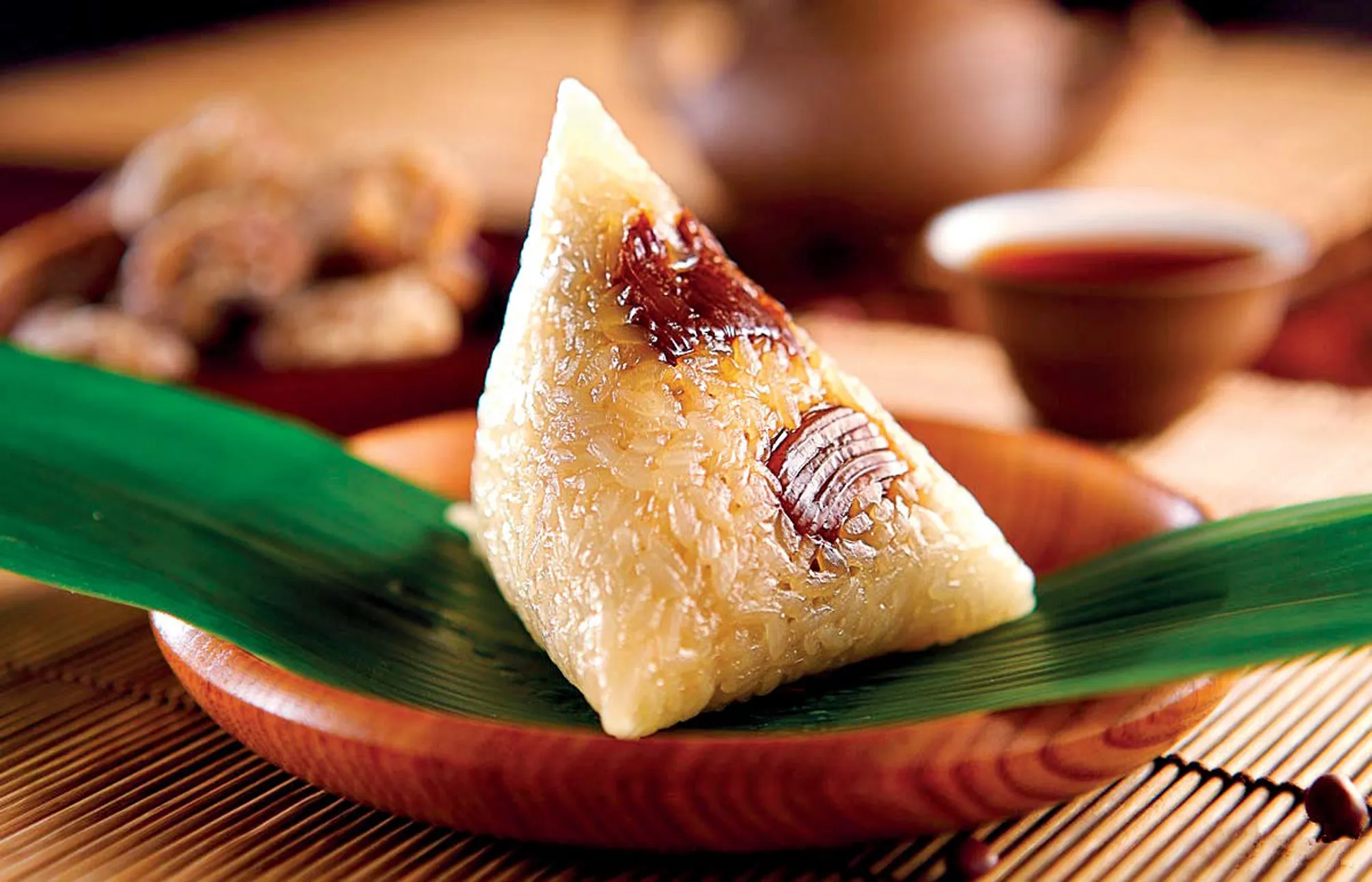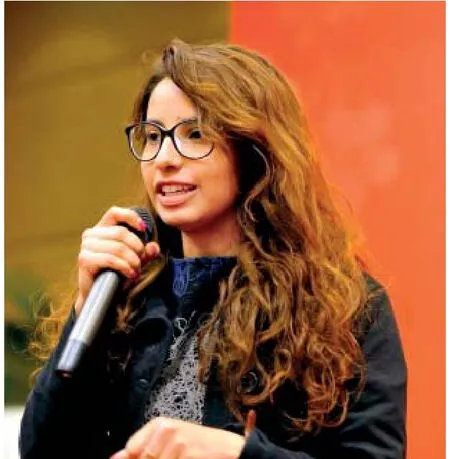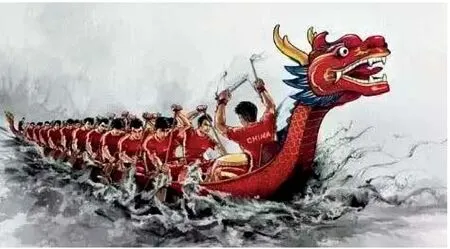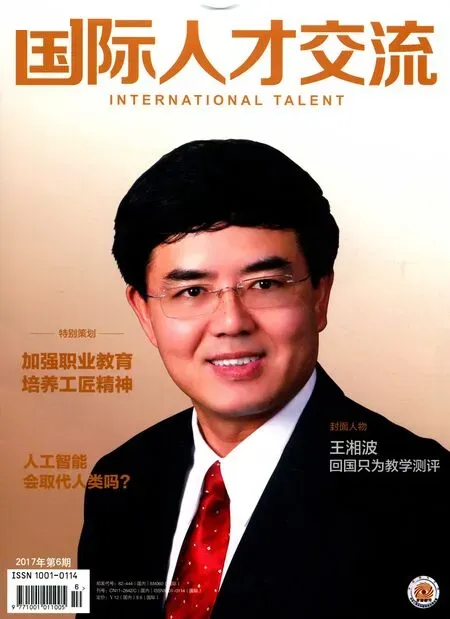端午节是纪念屈原吗?
2017-06-09吴星铎,苏莉,米沙等
国际朋友说WORLD SPEAKING
端午节是纪念屈原吗?
Is Dragon Boat Festival in memory of Qu Yuan?

5月30日是中国传统节日——端午节,我们的国际朋友们了解端午节的由来吗?知道端午节和中国哪位诗人有关系吗?了解端午节的饮食文化吗?本期“国际朋友说”,我们请来作家、学者崔岱远,与各位国际朋友一起分享端午节的文化话题。
A traditional Chinese holiday, Dragon Boat Festival, or Duan Wu holiday, was on May 30. What do our “World Speaking” guests know about the festival? Do they know what Chinese poet the festival is linked to? What about traditional dishes often served on Duan Wu? This time we have invited an expert and a scholar Cui Daiyuan to share with us the culture of the festival.
主持人:吴星铎,中国(Wu Xingduo,China)
嘉宾主持:苏莉,俄罗斯(Anastasia Sukhoretskaya,Russia)
嘉宾(Guests):米沙,哈萨克斯坦(Mikhail Chursin,Kazakhstan);苏锐,赤道几内亚(Jesus Pierrot,Equatorial Guinea);王龙,智利(Emilio José Méndez Benítez,Chile);王慧,智利(Caroline Margarita Parraguez Diaz,Chile)
特遨嘉宾(Guests):崔岱远(作家,文化学者,北京读书形象大使,首都图书馆荣誉馆员,北京阅读季首批领读者培训师,全国读书会联盟导师,现任中国财政经济出版社副编审。系列作品《京味儿》《京味儿食足》《京范儿》引领人们循着文字感受京城民间最本真的性情气韵。《吃货辞典》入选“中国影响力图书”“中国好书”,被誉为接地气的好作品。)Cui Daiyuan (writer, culture scholar, Beijing book reading image ambassador, Capital library honorable librarian, trainer during the Beijing reading season, supervisor of National Readers Union, subeditor of China Finance and Economics publishing house.) Cui was elected as main expert during the 12th, 13th and 14th Beijing International Book Festival, a guest at CCTV, CNRS and China Education Channel. Cui has published “The taste of Beijing”,“Abundance of Beijing taste”, “Beijing style”, which introduce the real taste of the capital. “The dictionary of a foodie” has been selected for “China’s most influential books”“Recommended books of China”.
粽子分享
现场,专做老北京风味儿的刘宅食府创始人杨玉萍老师不仅带来了粽子,还为大家展示了粽子的“正确打开方式”。她说,用来捆粽子的线叫“马莲”,上面有个“活扣”,一拉就开。一般都用两片或三片粽叶,如果叶子宽就用两片,叶子窄就用三片。粽叶是苇叶,所以吃起来有股清香。脱去粽子绿色的外衣,露出它米色的胴体,入口后香甜软糯。国际朋友们听得如痴如醉。
Sharing zongzi
Zongzi were specially provided and cooked by Liu Zhai Restaurant. Its founder Yang Yuping has showed our guests how to open zongzi the right way. The thread that goes around a zongzi is called “ma lian”, and on the top there is a “slipknot”. Once you pull it, it opens. Normally, they use two or three leaves; if the leave are wide, then two leaves are enough. For making zongzi, reed leaves are used, so they are tasteless. Once you deprive zongzi of its green clothes, there pops up its rice-colored body, and when you bite it, you feel it sweet taste.
端午印象
Impression on Duan Wu Festival
Jesus: I believe, Duan Wu is an important holiday in China, when Chinese people eat zongzi.
Anastasia: Duan Wu is an off i cial day-off in China, and now it is protected by the United Nations as China’s national heritage.“Duan Wu” has other names as well, it can be called “Duan Yang”, or “Chu Wu” festival, because in Chinese language,“duan” means “beginning”.
Emilio: Duan Wu is also a huge ancient festival, in the South people stage riding boats competitions.
Caroline: My impression of Duan Wu is a Chinese poet Qu Yuan.
Mikhail: And as for me, Duan Wu is one of the traditional Chinese holidays. There are three persons related to the holiday: Qu Yuan, Wu Zixu and Cao E. But all we have learnt is connected to the Qu Yuan’s legacy, so people used to put rice in silk pockets and then let them fl ow in the river. Later they used bamboo instead of silk, and then there came the reed leaves, which we now know as zongzi.
苏锐:我认为端午是一个很重要的节日,中国人有吃粽子的习惯。
苏莉:端午节是中国国家法定节假日,被列入联合国非物质文化遗产。“端午”还有不同的称呼,可以叫“端阳”节或“初午”节,因为“端”是“开始”的意思。
王龙:端午节是一个非常大而古老的活动,在南方人们会划龙舟。
王慧:端午节,我知道是纪念一位诗人叫屈原。
米沙:在我印象中,端午节是中国传统节日之一,有三个和它相关的人物,分别是屈原、伍子胥以及曹娥。但我们学到的大多都是为了保护屈原的遗体,人们把米饭放在丝绸袋里,再扔进河里,后来用竹子取代丝绸,最后用了粽叶,于是就有了粽子。
书斋趣话
Wisdom of the Festival
Cui Daiyuan: Our dear guests have just mentioned Qu Yuan. Qu Yuan lived around the year of 300 B.C. And then, everyone can think of zongzi, but the truth is, that the history of zongzi is 2,000 years older than that of Qu Yuan. In the Neolithic Age, people thought that the day of Summer Solstice is the scariest day of the year, because after this day, the night hours get longer, that’s why it was called “Evil Day”. In the ancient days, people counted the years not according to the western metrics, but by a traditional lunar calendar. That’s how the character“wu” has come into light. The day of Winter Solstice falls on the fi rst month of the year, which is called “zi yue”, and to put them together is “wu yue”. That’s how the name of the festival was born. They imagined this day was the scariest, so they used a cow’s head as a sacrifice. After the Western Zhou Dynasty, people realized, this way of bringing sacrif i ces is very cruel, so they put the rice in the leaves and form a “cow’s horn”, and then it became zongzi. Finally, people started using a sort of water plant, cane shoots and to use the millet produced in the North. This thing was called “zongzi”. That’s why the holiday has no direct relation with Qu Yuan.

崔岱远
崔岱远:提到粽子,各位朋友都提到了诗人屈原。屈原生活在公元前300年左右的时代。但实际上粽子的历史比屈原要长2000年。在新石器时期,先民在夏至这天祭祀百物之神。他们认为夏至这一天很可怕,因为过了这一天黑夜在一天天变长,所以这一天叫“恶日”。在古代不用公元纪年,用的是天干地支,就是甲乙丙丁戊己庚辛,于是就有了“午”,因为冬至这个月是第一个月,叫“子月”,子丑寅卯辰巳午,推算下来五月就是“午月”,端午节就这么出来的。由于他们认为这一天很可怕,就把牛的脑袋砍了,用牛头祭祀。后来到了西周,人们觉得这种祭祀方法很野蛮,就用草裹上米做成一对牛角样子的“角黍”摆在那儿,这就是粽子的来历。再后来人们用一种水生植物,“茭白”的叶子,裹上北方产的大黄米,代表阴阳相裹,这个东西就叫粽子,所以跟屈原没关系。
主持人:那么屈原和粽子间的传说怎么流传下来了?
崔岱远:屈原是战国时期的一位楚国大夫,也是位大诗人,五月初五这天投江而死。当时,当地人将大米塞进竹筒,再扔进江里。后来,因为他是死在水里的,人们认为他是水神。南方有祭祀水神的传统,因为屈原是一位大诗人又是一位爱国者,他的道德和文化力量远远大于曹娥等其他投江而死的人,所以就把屈原传下来了。东汉时有一个传说,一个人在汨罗江畔碰见一位身着白衣服的人,这个人说我就是屈原,非常感谢你每年来祭祀我,但扔到江里的东西都被蛟龙偷吃了。请用叶子将其包裹后用五彩丝线缠绕,因为蛟龙怕五彩丝线。之后这种风俗就传开了,所以东汉以后,粽子才真正和屈原产生关系。
Host: Then how did zongzi and Qu Yuan become interconnected?
Cui Daiyuan: Qu Yuan was an off i cial of the Chu State during the Warring States period, and also a poet. In May he committed suicide by drowning in a river. At that time, local people stuffed bamboos with rice and threw them into the river. Later, because he died in water, people considered him a Water Spirit. The Southern dwellers held commemoration tradition, because Qu Yuan was a big poet and a patriot. His morals and his power of culture has long surpassed, Cao E and others who drowned in water, that’s why the traditions of commemorating Qu Yuan took is beginnings. One legend of the Eastern Han Dynasty says, there was a man in Miluo river who met another man, all dressed in white. This man said he was Qu Yuan, and he was grateful to the people who came to the river every year to commemorate him, but all the things they threw into the river got eaten by dragons. So he suggested they should envelope it with leaves and then intertwine it with a silk, because dragons don’t like silk. So, then this tradition started. Since the Eastern Han Dynasty, the tradition of eating zongzi and the personage of Qu Yuan became interconnected.
主持人:端午节好像还有辟邪的习俗?
Host: Duan Wu festival also has something to do with scaring away the evil spirits?
崔岱远:端午节的文化内涵不仅是纪念屈原,第一个文化内涵就是感知夏季,第二个是纪念屈原,另外一个是辟邪。古人没有科学观念,他们发现一到夏天就爱得病,怎么办呢?第一件事就是吃五毒饼,就是把五种毒虫刻在一个饼上,五种毒虫有蛇、蝎、蜘蛛、蜈蚣以及癞蛤蟆(蟾蜍)。还有就是五彩丝线,因为他们认为“邪”“魔”怕五彩的东西。还会把雄黄抹在小孩儿的脑袋上,画一个“王”字,喝雄黄酒。女孩儿会用五彩丝线缠一个小粽子挂在身上。类似的还有吃“五黄”,后来南方又衍化出吃“五红”。辟邪还有几个有趣的风俗,在门上挂三样东西,一个是菖蒲叶,因为它长得像宝剑,所以觉得辟邪;第二个是艾蒿,它的子长得像小锤子,人们认为这个东西叫鞭子,可以打妖怪,所以辟邪;第三个是大蒜。而且这三个东西有一个共同的特点——驱蚊。
Cui Daiyuan: The whole purpose of Duan Wu is not to commemorate Qu Yuan;the fi rst meaning is to see off Summer Solstice, the second is to commemorate Qu Yuan, and then to send away evil spirits. The ancient people didn’t have any notion of science, they discovered that when summer comes, they easily get ill, what to do then? What they did fi rst was eating “f i ve poisons bread”, they took fi ve poisonous creatures - snake, scorpion, spider, scolopendra and toad - and rolled them into bread. And then there was fi ver-color silk, because they believed that fi ve-color silk can scare the evil spirits. Then they would draw the “king” character on the children’s elbows and drink realgar wine. Girls would use the fi ve-color silk to tie to their clothes. Likewise, the southerners ate “f i ve yellows” which then became“five reds”. Scaring the evil spirits also has one interesting tradition, to hang three things on the door.One was calamus, because it looks like a sword, that’s why it was suitable to scare the spirits with it. The second is felon herb, which looks like a hammer, which can beat away the evils, and the third one was garlic. All these three things had one thing in common; they also helped to keep away the mosquitoes. And then, to see off the Summer Solstice, they ate green bean pies.

米沙

王龙

苏锐

王慧
主持人:崔老师您再讲一下刚刚大家提到的赛龙舟。
崔岱远:赛龙舟其实跟屈原没有关系,屈原投江是真的,他投江的时候身边没有人。有首诗叫《渔夫》,这首诗的大概意思是这样的,就是屈原在江边碰到一个渔夫,屈原说众人皆醉我独醒,渔夫说“沧浪之水清兮”,就是说如果沧浪之水是清的呀,它可以洗我帽子上的缨子,“沧浪之水浊兮”,脏水可以洗洗脚,你何必想不开呢。结果屈原没有听他的话,渔夫觉得这个人死心眼就离开了。元代蒙古族南下占领中原,忽必烈灭了大理国,就是现在的云南。大理国的人要逃命,他们顺着澜沧江划到了湄公河,是划着龙舟跑的。赛龙舟这个风俗起源于明代,但是逃跑这件事儿总归不光彩,所以人们愿意把它附着在屈原身上。
王慧:端午节时南方会划龙舟,那么北方会做什么?
崔岱远:这个习俗有很强的地域性,因为北方没有那么多河流,所以没法划龙舟。北方会喝雄黄酒,在小孩脑袋上画王字,代表“老虎”,还会在门上挂菖蒲叶、大蒜和艾蒿。
Host: Teacher Cui has also mentioned the boat racing.
Cui Daiyuan: The boat racing competition actually has nothing to do with Qu Yuan. Qu Yuan drowned, that’s the truth, when he stepped into the water, there was no one by his side. There is a poem named “Fisherman”, the meaning of the poem is this: Qu Yuan saw a fi sherman fi shing on the river bank, Qu Yuan said all the others are under the illusion and I’m the only one who’s awake, and the fi sherman said when the water is clean, it can wash the ribbon on his hat, when the water is dim, then it can wash my legs, why you are so in low spirits? Qu Yuan didn’t hear him, and the fi sherman thought this man was so stubborn and left. During the Yuan Dynasty, the Mongolians occupied the central plains and were about to destroy the State of Dali, which is today's Yunnan province. The people of Dali had to save their lives, so they reached the Mekong River, in dragon boats. The tradition of dragon boats racing took its beginnings from the Ming Dynasty, but the idea of people’s fl eeting to save their lives didn’t sound as exciting, so they decided to attach it to Qu Yuan.
Caroline: On Duan Wu the southerners have the boat racing, then what do the northerners do?
Cui Daiyuan: This tradition has something to do with the geographical position. In the north they don’t have so many rivers, that’s why they didn’t arrange any boat racing competitions. The northerners drink alcohol, draw “king” character on the children’s body, act out “lions” and hang calamus, felon herb and garlic.
国际视角
你们国家有没有类似端午节的节日?
米沙:斯拉夫有一个传统节日叫“Д е н ь Ивана Купалы”,在7月7日。以前没有冰箱和药品,于是就跳火,跳过去后所有的病都留在火里了。如果不愿意跳火,可以头戴花环,然后把这些花环扔到河里,代表扔掉所有的病。
王慧:因为智利只有两百多年的历史,所以习俗都不是很古老的,但和端午节比较相似的就是“辟邪”,过新年时,人们会在家里挂一些红色的东西,因为红色是“辟邪”的,打扫卫生,也是为了辟邪。
International viewpoint
Do you have a similar holiday in your country?
Mikhail: The Slavonic people has the traditional holiday called“Ivana Kupala”, which is held in July the 7th. In the ancient times, people didn’t have medicine or fridges. The panacea was to jump over the fire, so that when you are jumping you are leaving all your illnesses in the fi re. If you don’t want to jump over the fi re, then you can make yourself a fl ower wreath, then throw the fl owers into the river, which meant to throw all your sicknesses away.
王龙:很久以前,智利这片土地上有很多印第安人。传说中,智利南方有一个身材很高的民族,叫作“Badaguonei”意为“大鞋”。他们杀死动物后把它们的皮放在自己身上, 也会做一些特别长的船,并常驻于船上。在火山上能发现他们留下的足迹,智利发现了他们的捕筒。
苏锐:我的民族有一个节日叫“GuYou”,也是为了辟邪,在这天,一个人会穿很多衣服,戴上面罩装鬼,然后有人背着他,敲锣打鼓,走街串巷。“GuYou”只有一天,是从早上开始,但我们没有固定的哪一天,都是自己决定什么时候开始,家里有人结婚,或是生了龙凤胎、双胞胎,都可以“GuYou” 一下。
苏莉:我的出生地是鞑靼斯坦共和国,我记得最清楚的是当地的Sabantui,一个在6月左右举行的节日,从早到晚有各种各样的比赛,奖品是斑羊一类的动物。各个小镇都会举办,一般都在周六,场上还会有很多正宗的小吃。有沙琪玛,用蜂蜜做的,非常香。还有用各种各样肉做成的各种形状的肉饼。
Caroline: Because Chile has only roughly 200 years of history, we don’t have that many ancient traditions or a holiday like Duan Wu that is meant to scare away evil spirits. During the new year, people hang red things over their door, because red color is the color that can frighten spirits. Making up the living place is also to scare the spirits away.
Emilio: Long time ago, on the territory of modern Chile there lived Indian people. One legends tells about a very high tribe called “Patagones” and meant “big shoe”. When they killed an animal they put their skins on their body, also made very long boats, sometimes even live in them. On the volcano one can see their footprints.
Jesus: People of my country has one holiday called “Gu You”, also the one that scares the spirits away. On this day, one person could wear many clothes, face masks, then there is a person behind him playing different musical instruments.
Host: How many days can “Gu You” last?
Jesus: One day, usually begins in the morning, but we don’t have a regular day for it. We decide when to begin festivities. Family member gets marries or gives birth to a child, twins etc, can be celebrated with ‘Gu You”.
Anastasia: My motherland is Tatarstan, and we celebrate the holiday called Sabantui, every June. From morning to evening they stage different competitions, and the prize is a goat or a sheep. In every big or small city or village people hold celebrations. The festival usually falls on Saturday. There are always many types of food and traditional snacks on the Festival.
Host: You just said about the food, can you give us an example?
Anastasia: Chak-chak, which is made with honey, and tastes so good! And also meat pies, which are made in different shapes.
你们国家有没有类似屈原的大诗人,被人们铭记?
苏锐:赤道几内亚没有伟大的诗人,但有著名的作家,她叫Guillermina Mekuy(吉列米娜·梅库依),我们的总统偶尔也会写书。
米沙:阿拜不仅是诗人,也是著名的作家、学者,他有一本书叫《箴言录》,提到了一些治学方面的问题,比方说“什么是人”“什么是我们的生命”“什么是我们的未来”,也提到了一些民族心理的特点,他说每个民族都有自己的特点,而且每个民族的心理特点都会影响其情感、历史和未来的发展。他说出了哈萨克民族的缺点,但他的批评是为了发展自己的民族,他是一位真正的爱国主义者。哈萨克斯坦很多的成语和俗语都来源于这本书。
王龙:巴勃鲁·聂鲁达(Pablo Neruda)是毛泽东的好朋友,在那个年代写了两首关于中国的诗,大使馆有聂鲁达的书可以赠予人们。抗日战争期间,美国会偷一些中国的文物,聂鲁达就会把它们记载下来。在朝阳公园就有他的雕塑,我们感到非常荣幸。
苏莉:鞑靼斯坦是一个很有文化的民族,这里有俄罗斯喀山联邦大学,是列宁、列夫·托尔斯泰的母校。有一位著名的诗人叫穆萨扎利,在第二次世界大战期间,他被关进集中营,在狱中他写关于自由的诗歌。穆萨扎利的雕像现在在喀山市中心,他仗着剑,象征自由。
Do you have in your countries personages like Qu Yuan, poets, who are commemorated?
Jesus: Ecuatorial Guinea doesn’t have any famous poets, but has outstanding writers, for example Guillermina Mekuy, and our president also can write books.
Mikhail: Abay, who is not only a poet, but also famous writer. He’s written a book called “Proverbs”, where he touches upon philosophical questions, for example, “what is called a human”,“what is the purpose of our lives”, “what is our future”, and also reveals some characteristics of the nation way of thinking. He said every nation has its own peculiarities, and their psychological characteristics can affect their historical and future development. He also mentioned what the Kazakh people lacked, but his criticism come out of his genuine willingness to help the development of his nations, he is a real patriot. Many Kazakh sayings and proverbs come from this book.
Emilio: Pablo Neruda, he was a good friend of Chairman MaoZedong. He wrote two poems about China, there is a book of Neruda in the Chilean embassy. During the war with the Japanese, Americans could have stolen some of the China’s relics, and Neruda made the record of them. In the park of Chaoyang there is a statue of Neruda, so we feel very honored.
Anastasia: Tatars are the people of great cultural heritage. We have the Kazan Federal University, the alma-mater for Tolstoy and Lenin. There is a famous Tatar poet whose name is Musa Jalil. In the second world war, he was captured by the Nazi, and in the prison he wrote poems about his motherland. The statue of Musa Jalil is now in the center of the city, in front of Kazan Kremlin. He is there with a sword, as a symbol of freedom.
你们国家有没有类似粽子的食物?或者类似雄黄酒?
主持人:其他国家有没有什么特定的食物是在一个节日吃的?比如说粽子,在中国我们平时不吃粽子的,只有在端午这天才会吃。
王慧:在9月1 8日国庆节,我们会吃“Empanadas”。
王龙:蒙古国有这种食物,类似烤包子。还有一个叫“Aaonaoyou”的节日,人们会将石板烧热,然后把海鲜、土豆、鸡肉、羊肉放进去,最后把树叶盖在上面。
米沙:因为哈萨克斯坦有一个节日叫纳吾热孜节(Наурыз мейрамы),一般在3月22日这天过,是冬天结束、春天到来的意思。这天人们会吃“七种糖”,因为它是由7种成分做成的,有牛奶、肉、黄豆、玉米、大麦、米饭和水。
苏锐:我们会在GuYou的时候吃一种绿色的食物。
Does your country has food similar to zongzi? Or something like realgar wine?
Host: Are there food in other countries that can be eaten only during the festivals? For instance, zongzi, in China we usually don’t eat zongzi, only during Duan Wu.
Caroline: In September the 18th we celebrate the National Day, then we eat empanadas.
Emilio: In Mongolia they have a special food, similar to fried“baozi”. On a holiday called Aaonaoyou, people eat seafood, potatoes, chicken, lamb, all put in a stove and cover with tree leaves.
Mikhail: In Kazakhstan we have a holiday called Nauryz Meiramy. Usually it is celebrated on March 22nd, when winter ends and spring comes. At this time people eat seven-kinds sweets because they are made of seven ingredients, they have milk, meat, beans, corn, wheat, rice and water.
Jesus: We eat green colored food on Gu You.
你们国家有没有类似赛龙舟的比赛?
米沙:在哈萨克斯坦没有类似赛龙舟的比赛,因为哈萨克文化是草原文化,没有河,没有海。但有一个特别的比赛,叫KyzKyy, 几个小伙子骑着马去追求几位漂漂亮亮、还没结婚的姑娘,他们的目的是获得姑娘的吻。女孩儿不愿吻小伙子的话会用棒打他们,并骑马离开,如果男孩获得亲吻,就可以去她家求婚。这是一种传统的游戏,每年在古尔邦节举办。
Do you have similar boat racing in your countries?
Mikhail: In Kazakhstan we don’t have, because Kazakh culture is the steppe culture. It doesn’t have river or sea. But we have a special competition called Kyz Kyy, several men riding a horse are chasing after beautiful, single ladies. Their aim is to get a kiss from a lady. If a lady doesn’t want to kiss a guy, she hits him with a stick. If a guy get a lady’s kiss, then he asks her family for a marriage proposal. This is a traditional game, which takes place in Kurban Festival.
结语
崔岱远:文化的价值,在于分享;文化的自信,在于交流中的自信。
(中文整理:吴星铎,王雅婷;英文整理:苏莉;实习生王兆峰参与活动)
Conclusion
Cui Daiyuan: The value of culture is within its sharing, the conf i dence of culture is within the conf i dence of exchange.
(Chinese version: Wu Xingduo,Wang Yating; English version: Anastasia Sukhoretskaya; intern Wang Zhaofeng is helpful to this activity)

赛龙舟
